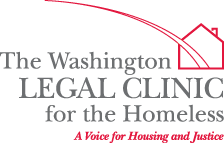In the spring of 2017, the Bowser Administration introduced amendments to the Homeless Services Reform Act (HSRA) that many of us in the community strongly opposed. The amendments did virtually nothing to improve the lives of people experiencing homelessness—instead focusing on decreasing access to critical shelter and housing services. For months a strong coalition of non-profit organizations and people experiencing homelessness fought against these changes, while simultaneously fighting for changes that we thought would help people in shelter and housing programs. Some Councilmembers fought alongside our coalition, while others seemed to adopt the Administration’s narrative and reasoning—that limited resources means the District needs to make sure only people who need help are served, rejecting our cry that creating such a high barrier, punitive system would actually do the opposite. The bill, with some improvements but not many, passed in December of 2017, and took effect in February of 2018.
On September 6, 2019, the Department of Human Services (DHS) issued regulations (proposed and emergency) interpreting the new law. These regulations are in effect now and you can read them in their entirety here. We believe that many parts of these regulations fail to comply with the letter and/or spirit of the law, as well as fail to comport with national best practices.
The public had thirty days to comment on the proposed regulations. On Monday, October 7, we, along with Bread for the City, Children’s Law Center, DC Coalition Against Domestic Violence, Legal Aid Society of the District of Columbia, and the Washington Lawyers’ Committee for Civil Rights and Urban Affairs, submitted extensive comments on the proposed regulations. Below is an excerpt from our cover letter, which summarizes our major concerns:
First, the DC government is required to comply with the Administrative Procedure Act (APA). Among other things, the APA requires that any policy the agency uses to implement a program follow rulemaking requirements.[1] Throughout these regulations, there are references to including critical program requirements in program rules or contracts, neither of which comply with the APA’s requirements for public promulgation of rules. These regulations are also silent on how entire programs work (such as the Homeless Prevention Program), how eligibility is determined (in any of the housing programs DHS operates, most notably Targeted Affordable Housing, which the regulations are completely silent on), and the extent and type of assistance offered to eligible applicants (such as how rent is calculated in housing programs or how long assistance lasts). While we believe these regulations facially violate the APA in these areas, it is also important to note that any decision that DHS or providers make is subject to challenge if rules have not been properly promulgated.
We assure you that this assertion is well-grounded in both law and in policy. There is considerable supportive case law, even case law specifically holding DHS to this standard—invalidating income guidelines,[2] emergency assistance criteria,[3] and calculation of public assistance payments[4] when no or inadequate rules were promulgated. The policy undergirding the law highlights the importance of the law, namely that people deserve to know with consistency and transparency the rules that will be applied to them and those rules must be made through the proper public regulatory process. Applicants deserve to know whether they are eligible for a program or what they must show to prove eligibility prior to applying for a program. Participants deserve to know how much rent they can lawfully be asked to pay while in a program. They deserve to know whether they can count on continuing to receive help if they comply with specific requirements, or not. And they deserve to be subject to consistent, fair, nondiscriminatory, and non-arbitrary decision-making.
Over the years, we’ve been pleased to see the District shift to a more Housing First approach to homeless services, not just in its permanent supportive housing program but across its programs. We are concerned that the regulations before us evidence a retreat from best practices and the philosophy of Housing First. We have tried to highlight some changes that would better align programs with the Housing First model. Of particular note, we do not support a mandatory services model for any housing or shelter program and were surprised to see that services are now mandatory in Rapid Re-Housing. According to the National Alliance to End Homelessness (NAEH): “A key element of rapid re-housing is the “Housing First” philosophy, which offers housing without preconditions such as employment, income, lack of a criminal background, or sobriety. If issues such as these need to be addressed, the household can address them most effectively once it is in housing… All participation in services should be voluntary and driven by the household.”[5] We’ve also noted where applicable that clients should be allowed and encouraged to “drive” their services and case management plans—too often there are references to providers developing plans without a mention of the client’s (we think primary) role.
Speaking of Rapid Re-Housing, we continue to oppose strict time limits that create a cliff unrelated to an individual’s ability to sustain housing. We were disappointed to see that these new regulations delete the requirement that providers consider the “totality of the circumstances” before deciding whether to extend the rental subsidy–instead providers can now refuse an extension based solely on the participant’s length of time in the program. Once again we turn to NAEH, oft-cited by the District as the premiere expert on rapid re-housing, for guidance as to how “progressive engagement” should work in rapid re-housing. In its “Rapid Re-Housing Progressive Engagement Guide,” NAEH describes a process that determines extension of assistance based on housing stability and whether “the household will return to homelessness if not provided with further assistance.”[6] No time limit is mentioned. The “Stability Conversation Guide” does not even include a question about how long the participant has received assistance. In DC, a fear of scarcity of resources seems to be driving the agency’s strict time limit policy rather than best practices or data—and certainly not input or experiences of the client and advocacy community, who have collectively been raising concerns about the harm resulting from this time limit for years. (We also note that there is data that supports that a perception of economic scarcity “produce[s] racial bias in the distribution of economic resources.”[7]) Just like the agency rightly determined that strict TANF time limits hurt children and should be softened, so should the agency reconsider having a strict time limit for Rapid Re-Housing.
Finally, we center these comments on an ideology that all of the District’s public benefits, including emergency shelter, should be low barrier. DC is not following best practices by having such a high barrier family shelter system. The U.S. Interagency Council on Homelessness recommends that jurisdictions: “adopt a Housing First approach and create low-barrier access to emergency shelter.”[8] We believe that the agency has developed a high barrier emergency shelter system both because of a perception of scarcity of resources and because of implicit or explicit bias: an unsupported belief that families are prone to lying or “gaming the system” in order to get into shelter. These regulations bake that myth into every aspect of family emergency shelter intake, most obviously in the agency’s determination that an applicant’s own statement can never be considered credible. This reading controverts the plain meaning of “credible evidence” and unequivocally contradicts the legislative intent of that section. (As discussed more fully below, Chairman Mendelson verified three times in discussion of that provision at first reading that credible evidence would include an applicant’s own statement, including oral statements: “The standard would permit an oral statement, if it’s credible than that would meet the burden;” “If your question is whether oral evidence is permitted, of course it would be;” and “If it’s credible, yes.”[9])
Similarly, the agency’s incredibly onerous requirements for families to prove District residency evidence an agency position that families cannot be taken at their word that they live here and intend to stay here—and even if they manage to provide acceptable proof of residency, the agency could still search and find “conflicting” information to conclude that they are not DC residents. We again note that this is a stricter standard for residency than any other public benefit, and most likely for any other program in DC.[10] Meanwhile, homeless parents and children go without shelter, risking serious harm. We hope that the District will look at homeless families as consumers and trusted partners who are in some of the worst situations of their lives; therefore treated humanely, with respect, and with trust.
___________________________________
We hope to sit down with DHS in the next few weeks to discuss our comments and will be following up with the Councilmembers who were most involved in proposing amendments to the HSRA, so they are fully aware of how their words are being interpreted by the agency, and how the new law is impacting people experiencing homelessness right now. We will continue to share updates and ways to get involved.
[1] See D.C. Code §2–502(6)(A) (defining a rule as “the whole or any part of any Mayor’s or agency’s statement of general or particular applicability and future effect designed to implement, interpret, or prescribe law or policy or to describe the organization, procedure, or practice requirements of the Mayor or of any agency.”)
[2] Webb v. DHS, 618 A.2d 147 (1992)
[3] Rorie v. DHS, 403 A.2d 1148 (1979)
[4] Junghans v. DHS, 289 A.2d 17 (1972)
[5] https://endhomelessness.org/resource/rapid-re-housing-a-history-and-core-components/
[6] https://endhomelessness.org/resource/progressive-engagement-stability-conversation-guide/
[7] See e.g. https://www.ncbi.nlm.nih.gov/pubmed/28910122
[8] https://www.usich.gov/resources/uploads/asset_library/emergency-shelter-key-considerations.pdf
[9] http://dc.granicus.com/MediaPlayer.php?view_id=2&clip_id=4199 (starting at 2:14).
[10] Just Friday, for example, the District released proposed regulations for the Department of Human Resources that defines a resident (for purposes of obtaining employment with the District government that requires or prioritizes District residents) as “an individual who primarily lives in the District of Columbia and intends the District of Columbia to be his or her home.” 6 DCMR 399.1. For verification, merely a District identification card and an indication that the applicant will pay DC taxes are required. 6 DCMR 303.3 And if that isn’t available, a variety of other types of documents are accepted, including a “sworn affidavit.” 6 DCMR 303.4(i). Available: https://www.dcregs.dc.gov/Common/NoticeDetail.aspx?NoticeId=N0086487.





